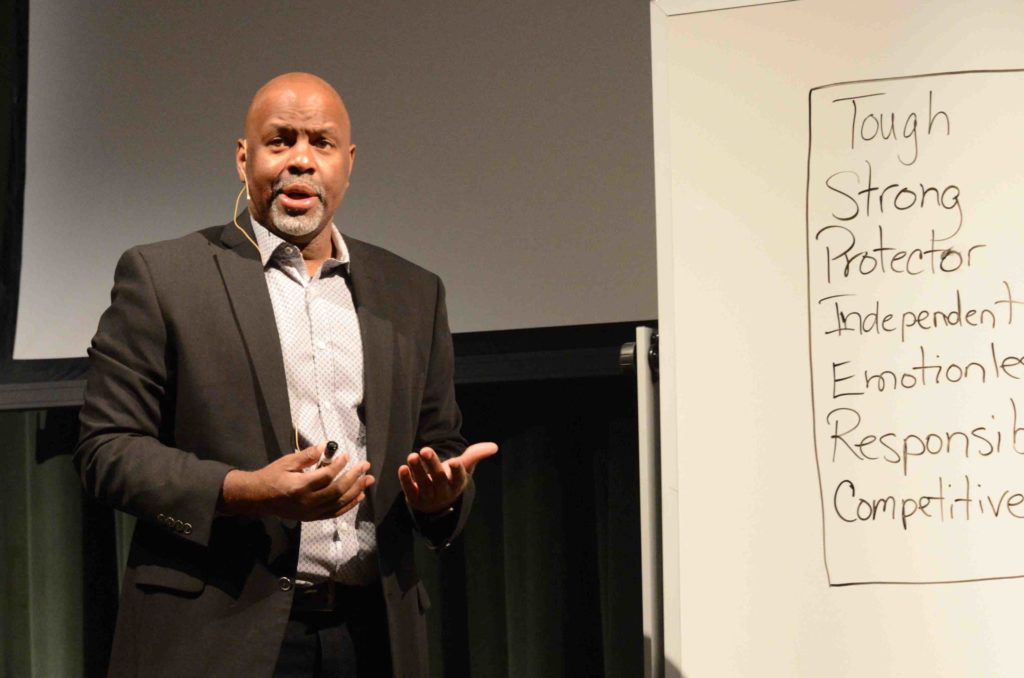Byron Hurt, On Living Outside the (Masculinity) Box
On November 16, documentary filmmaker and anti-sexist activist Byron Hurt took to the Smith Theater stage, to continue this year’s Health and Wellness series focused on masculinity: what it means, how we experience it, and how it manifests itself within us and in society at large. Mr Hurt began with an interactive exercise depicting the “box” that society constructs about how men should be, act, and present themselves. He asked for contributions from the boys, who offered descriptions like tough, strong, independent, assertive, competitive, dominant, protective, brave.
“My work, over several decades,” Mr. Hurt said, “has been to get men and boys to think critically about the ways in which we’ve been taught what it means to ‘be a man,’ and then to redefine it, to change that definition in ways that allow us to express our full range of emotions, our full humanity.”
Mr. Hurt grew up in Long Island, heavily immersed in sports culture; he played basketball growing up, and began playing football as a young child. He went on to play quarterback for Northeastern University, where those pressures of what was considered manly—or not—followed him. He began to see, firsthand, what damage that was doing, both to the men around him—his teammates, family members, fraternity brothers—but also to those they were in relationship with.
He then pointed to the descriptors that RL boys had identified as “outside the box”—such as small, weak, girly, less than. “The problem is that this construct, by design, defines women and homosexuals as ‘less than’—and if men view women and LGBTQ individuals that way, they are much more likely to treat them disrespectfully, even use violence against them.” Mr. Hurt continued that this construct is dangerous not only to others, but to the men themselves: Men growing up feeling confined to this box of masculinity are more likely to experience depression, drug and alcohol abuse, loneliness, anger, and suicide. Whereas giving yourself permission to live outside the box contributes to a life that is more authentic, stable, free, healthy, and safe.
“We are not just men, we are human beings,” he concluded, “and to be healthy human beings, we have to express ourselves honestly, authentically, and vulnerably. And we should be encouraging others to do so, as well.”
Mr. Hurt’s documentary Hip-Hop: Beyond Beats and Rhymes premiered at the Sundance Film Festival and broadcast on the PBS series Independent Lens. Mr. Hurt was a founding member of the Mentors in Violence Prevention (MVP) program—the leading rape and domestic violence prevention initiative for college and professional athletics. He also served as an associate director of the first gender violence prevention program in the U.S. Marine Corps. Today, Mr. Hurt is an adjunct professor of documentary journalism at Columbia University, and is a consultant for the Robert Wood Johnson Foundation’s Forward Promise initiative, a storytelling project for boys and young men of color. He is currently at work on a documentary focused on the dangerous effects of hazing.

